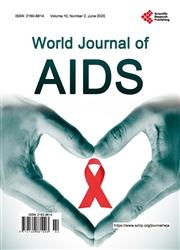HIV Prevention Concepts—Counter Movements Challenging Societies
引用次数: 0
Abstract
This article focuses on emerging trends conflicting current HIV prevention concepts. We address developments in Europe where similar HIV prevention strategies are applied. With epidemiological, time-staggered records from a European institution, we show how ineffective HIV prevention measures have turned out. The decision-makers responsible for these prevention concepts have ignored a multitude of individual motivations from people responsible for the spread of HIV. Both the legal classification of the messages of the prevention campaigns and the obligations of those affected by HIV concerning their social responsibility are analyzed. There are published requirements for updated, multisectoral prevention campaigns. They focus on the intensification of HIV testing concepts to reduce the proportion of late presenters and to link key populations of various kinds to medical and social care services. Four categories present relevant issues with the potential to combine them into suitable arrangements for new prevention concepts.艾滋病毒预防概念——应对挑战社会的运动
这篇文章的重点是与当前艾滋病毒预防概念相冲突的新趋势。我们讨论了欧洲的事态发展,这些国家采用了类似的艾滋病毒预防战略。通过一家欧洲机构的流行病学、时间交错记录,我们可以看到艾滋病毒预防措施是多么无效。负责这些预防概念的决策者忽视了艾滋病毒传播责任人的许多个人动机。分析了预防运动信息的法律分类以及艾滋病毒感染者在社会责任方面的义务。已公布了对更新的多部门预防运动的要求。它们侧重于强化艾滋病毒检测概念,以减少迟到者的比例,并将各种关键人群与医疗和社会护理服务联系起来。四个类别提出了相关问题,有可能将它们结合为新的预防概念的适当安排。
本文章由计算机程序翻译,如有差异,请以英文原文为准。
求助全文
约1分钟内获得全文
求助全文

 求助内容:
求助内容: 应助结果提醒方式:
应助结果提醒方式:


